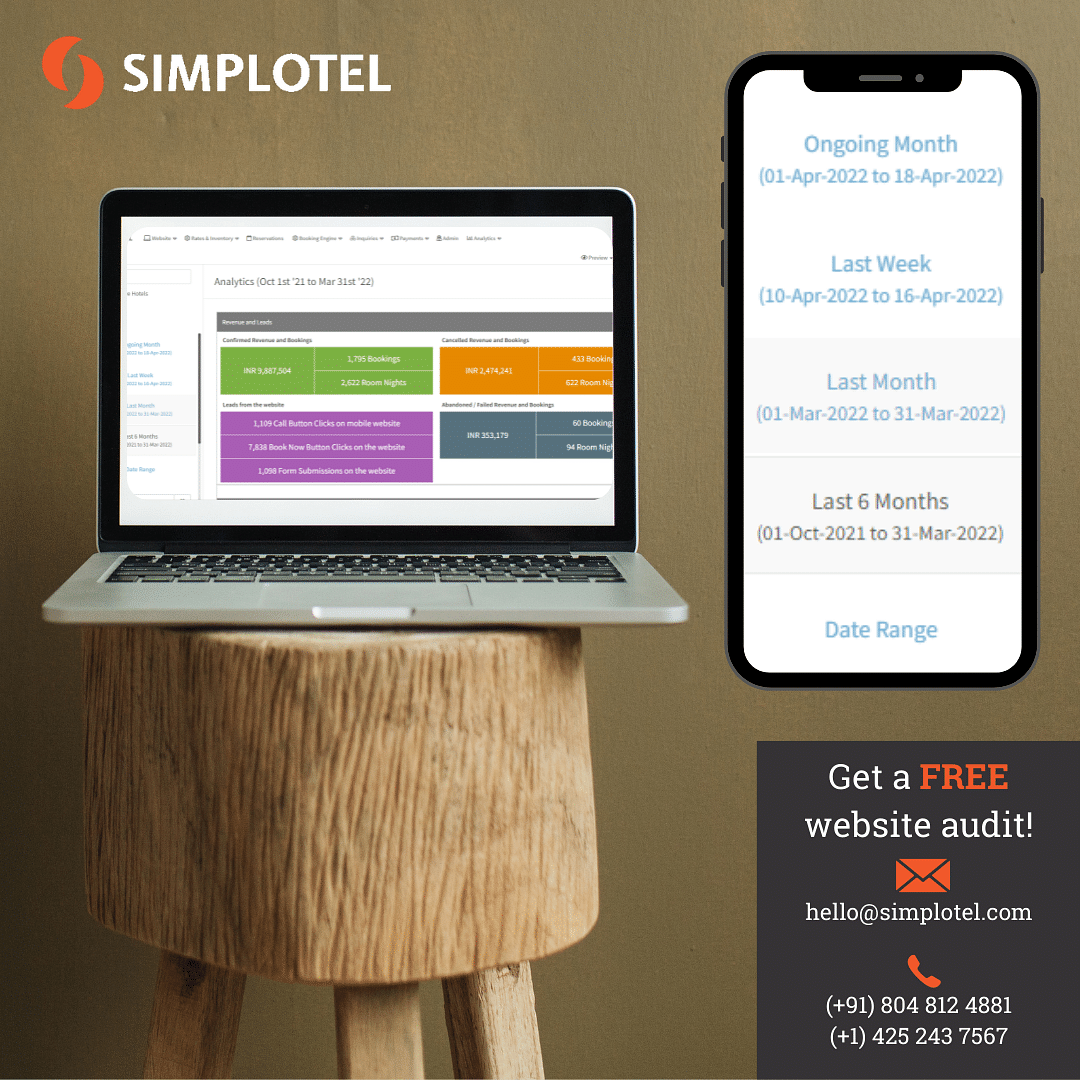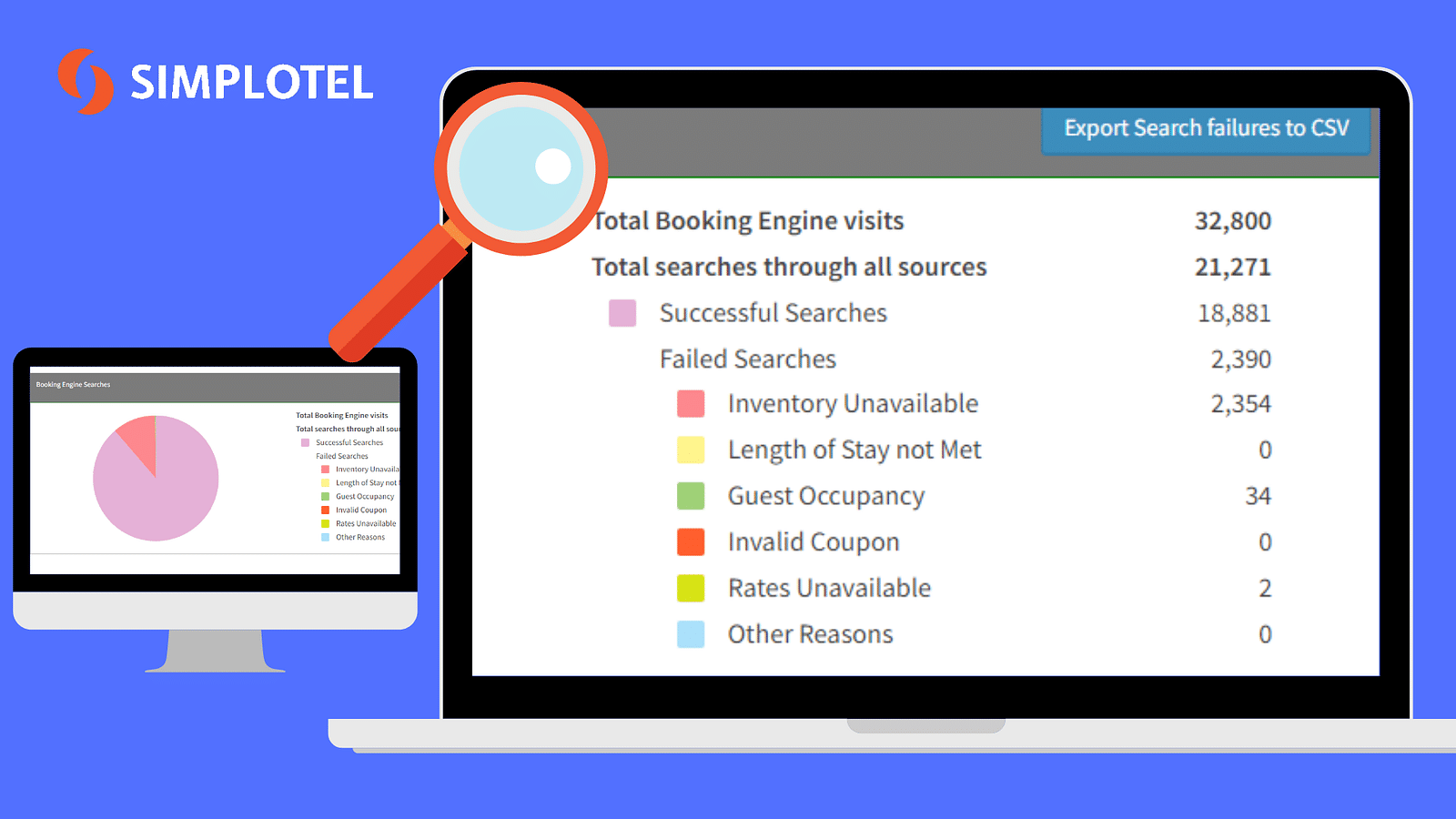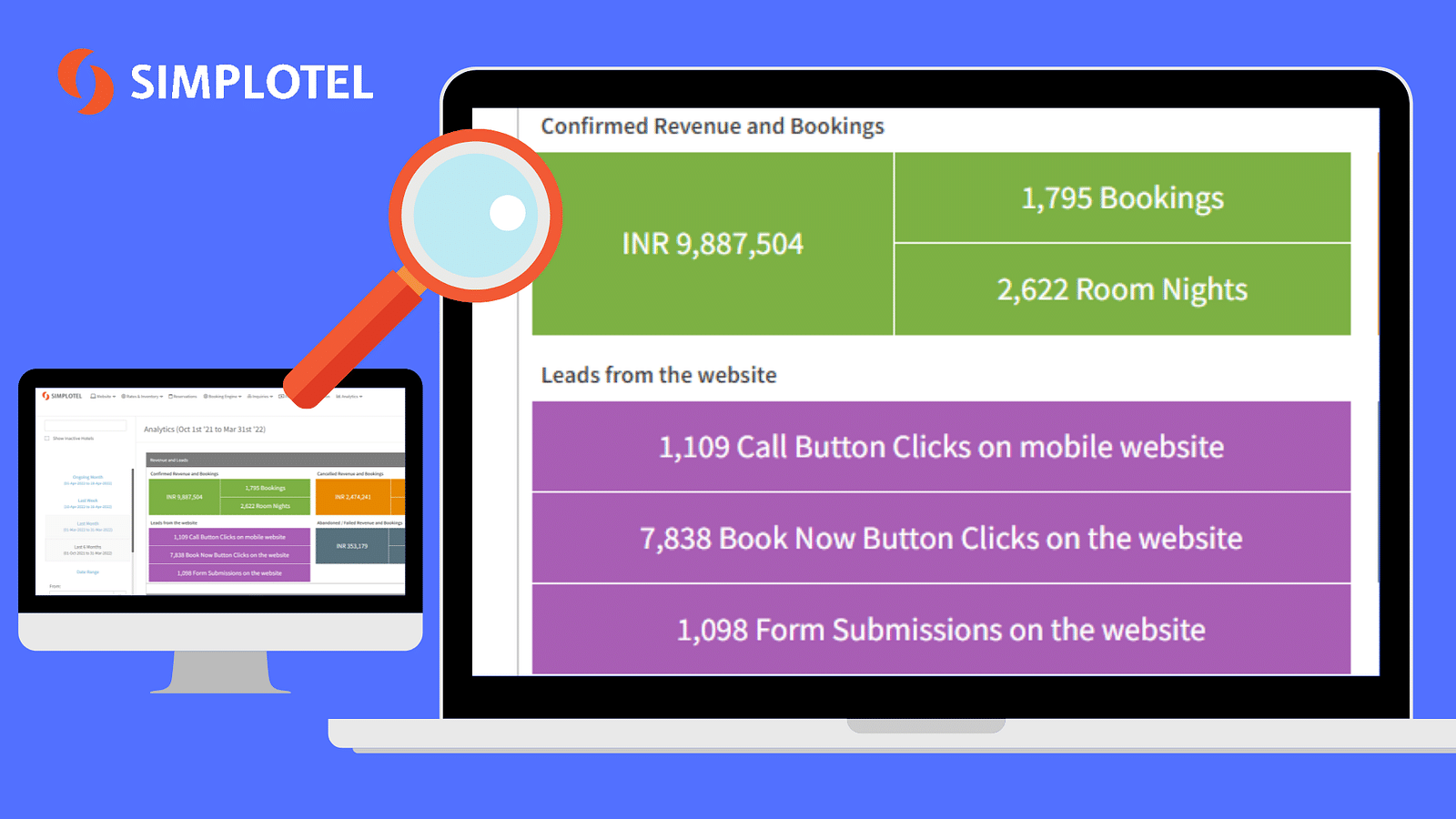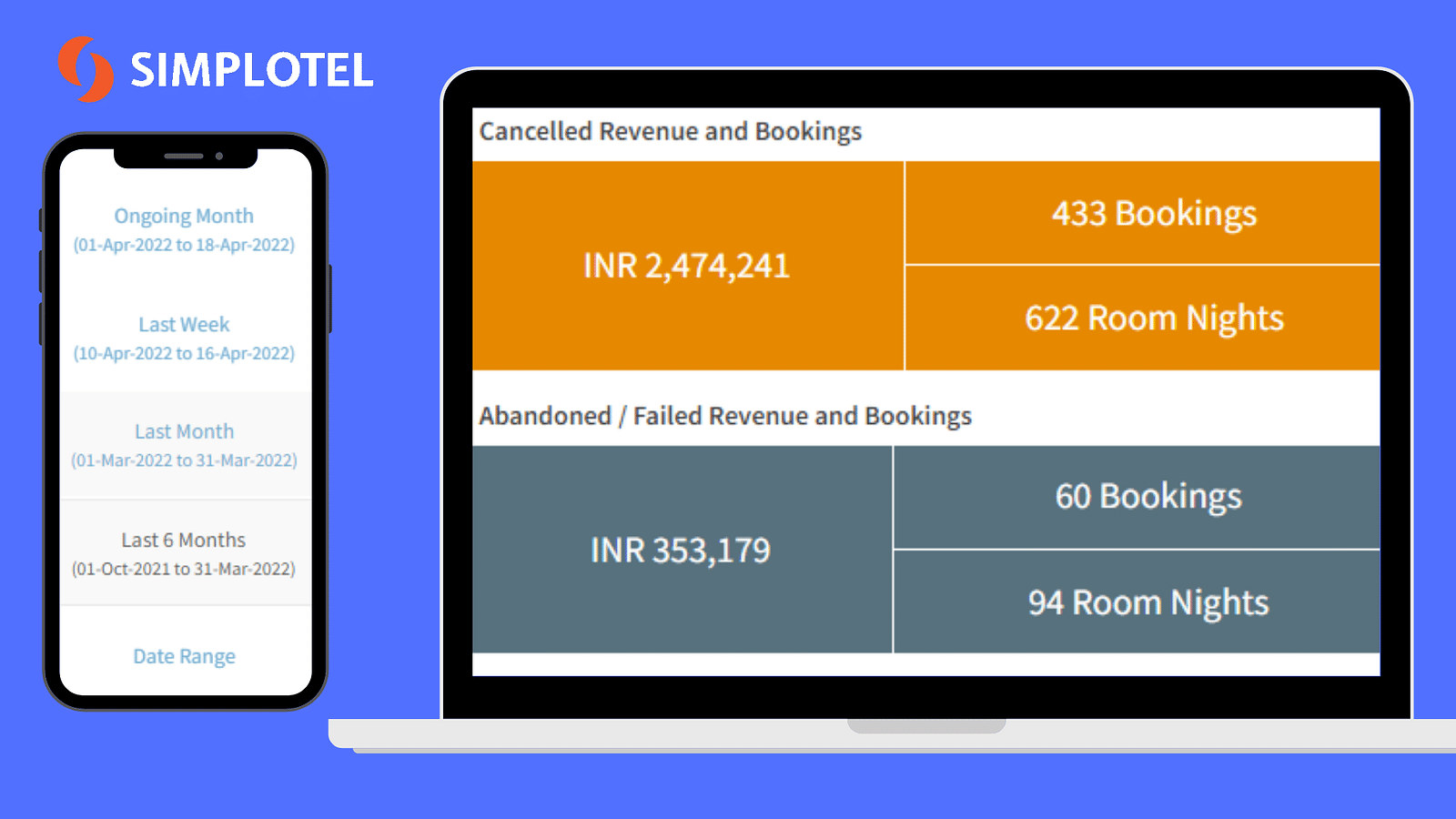- SIMPLOTEL Ranks #3 on Hotel Tech Report’s ‘Top Website Design’ 2026 List
- The Evolution of Pet-Friendly Hotels: From Basic Stays to Luxury Pet Pampering
- Mastering Hotel Guest Segmentation: Boost Revenue with 12 Key Personas
- Personalized Website Experiences: Tailor-Made Content & Offers to Drive Hotel Engagement
- Evolving Guest Expectations: Tailored Website Content & Offers to Drive Hotel Engagement
- How Hotels Can Attract Digital Nomads: Work-from-Hotel Strategies for 2025 Revenue Growth
- The Unseen Guest: Why Cybersecurity is the New Foundation of Hotel Hospitality
- Effective Hotel Branding Strategies: Build Loyalty & Stand Out in 2025
- The Essential Building Blocks of Hotel Brand Identity: How to Stand Out and Connect with Guests
- The Power of Hotel Branding: A Comprehensive Blog for Hospitality Success
- Rate Fencing in Hotels: The Strategic Key to Maximizing Revenue and Protecting Pricing Power
- Mobile-Only Pricing in Hotels: The Strategy, Impact, and Controversy Explained
- Rate Parity Is Dead: How Hotels Can Win Back Control and Direct Bookings
- Boost Direct Revenue and Maintain Channel Parity with Flexible Payment Options on Your Hotel Website
- Why Hotel Cancellation Policies Are Essential for Channel Price Parity and Direct Revenue Growth
- Unlock More Direct Bookings: How Hotel Website Inclusions & Amenities Combat Channel Parity and Drive Revenue
- Mastering Hotel Revenue Management: Strategies for High Profitability in a Dynamic World
- Price Elasticity in Hotels: The Key to Dynamic Revenue Management
- Competitor Rate Monitoring for Hotels: Strategies, Tools & ROI in 2025
- Hotel Booking Windows: How Lead Time Data Unlocks Revenue and Informs Smarter Pricing
- The Power of the Long Game: How Length of Stay (LOS) Pricing Revolutionizes Hotel Revenue Management
- Demand-Based Pricing: The Ultimate Guide to Maximizing Revenue and Guest Value
- Master Channel Parity: Complete Guide to Consistent Hotel Pricing Across All Platforms
- Fight OTA Price Wars: How Dynamic Pricing Helps Hotels Win Direct Bookings
- Maximize Your Guest Data: Strategic Follow-Up for Revenue Growth
- Make Every Click Count: The Power of Prominent CTAs for Hotel Websites
- Boost Your Hotel Website Conversions: Why Trust Signals Matter Most
- How a Seamless Booking Experience Boosts Hotel Direct Bookings
- Unlock More Direct Bookings: How Exclusive Special Offers Boost Hotel Website Engagement
- Immersive Hotel Website Experiences: How Interactive Content Boosts Engagement and Lowers Bounce Rate
- Unlocking Website Success: How Personalized Experiences Drive Engagement and Lower Bounce Rate
- Content Marketing: Driving Direct Bookings Through Engaging Content
- Social Media Engagement | The Gen Z Effect on Direct Bookings
- Paid Advertising for Hotels: Maximizing ROI in a Competitive Landscape
- SEO Optimization for Hotels: Driving Organic Search Traffic with Location-Specific Keywords
- Boost Your Hotel’s Direct Bookings: Conversion Strategies That Actually Work
- Hotel Website Engagement: Keeping Visitors Hooked for More Direct Bookings
- How Hotels Can Drive Quality Website Traffic to Boost Direct Bookings
- One Trip, Many Stops: How Itinerary Booking is the Schengen Visa of Hotel Reservations
- The Mid-Scale Hotels Revolution in India: How Value-Driven Stays Are Reshaping Hospitality
- How Aviation Drives Growth in the Hospitality Industry
- The Hidden Costs of Switching Your Hotel’s Booking Engine: Why It Might Not Be Worth It
- 7 Key Futuristic Trends Shaping Hotels By 2030
- Bastar Goncha Festival: Tribal Traditions, Tourism Potential & Hospitality Opportunities
- You Shouldn't Be Paying for This: The Truth About Free Booking Links for Hotels
- Beyond Parity: Using Email to Unlock Direct Bookings & Guest Loyalty
- Is Your Hotel Tech Stack Holding You Back? It’s Time for an Upgrade
- Bleisure Boom in India: How the Work–Leisure Blend Is Changing Travel
- Amarnath Yatra: A Spiritual Pilgrimage Fueling the Hospitality Boom in Kashmir
- What’s Hindering Indian Tourism & How We Can Combat It
- Bonalu: A Cultural Spectacle Driving Hyderabad's Peak Tourism Season
- The Grand Pilgrimage: How Puri's Jagannath Rath Yatra Fuels a Boom for Local Hotels
- Why Smart Hoteliers Are Ditching CPC for CPA on Google Hotel Ads
- Why Load Time Optimisation Can Make or Break Your Hotel’s Bookings
- How Direct Bookings Can Skyrocket Your Hotel’s RevPAR
- One Hotel, Two Tech Partners? Why That’s Costing You Conversions
- Hidden superpowers of a booking engine
- What to look for in a hotel booking engine for your property?
- How booking engines enhance the guest experience?
- Can just 10% more direct bookings drive 34% more profit? Yes — here’s how
- What is a hotel booking engine and how does it work?
- Whitelabeling: A key to building trust and loyalty in hotel bookings
- How a CDN can supercharge your hotel’s website performance
- The benefits of multilingual and multi-currency options for hotels
- Why a responsive design is crucial for your hotel website
- Essential elements for building a high-converting hotel website
- Why WordPress doesn’t work for hotels
- Booking engine + website = 2x direct bookings
- The Ghibli trend – a marketing goldmine or a passing fad?
- How boutique hotels can master e-commerce for more direct bookings
- Google to sunset CPA bidding on GHA
- How can hotels leverage ChatGPT & AI?
- Now drive 20% more revenue through website with day-use rooms
- Personalise the guest journey on your hotel website
- Optimise website conversions with Simplotel Hotel E-commerce
- Drive More Direct Hotel Bookings with WhatsApp
- What images work best for a hotel website?
- How can hotels choose the best payment gateway?
- What is a Global Distribution System (GDS)? How does it work?
- Does your booking engine still load on a third-party domain?
- What is a Channel Manager? How does it work?
- What is a Property Management System?
- Tips for hotels to secure their Google My Business (GMB) pages
- What’s an online travel agency (OTA)? How does it work?
- How can hotels drive additional revenue through upsells?
- ‘Pay Now’ or ‘Pay at Hotel’?
- Taking hours to respond to booking inquiries?
- Hotel revenue management: Leverage your search data
- Simplotel Guest Connect: Hotel Email Marketing Now Simplified!
- Hotels can now mimic OTAs & offer hidden discounts!
- Decoding Google Ads conversions for hotels: Assisted conversions
- Is your Hotel Booking Engine funnel choked?
- 7 Tricks to Design the Optimal Lead Form for Hotels
- Best Practices to Create Great Content for Hotel Websites
- Can Hotels Do Remarketing at No Additional Cost?
- Creating hotel chain offers made easy with our Booking Engine!
- 4 Ways to Design Optimal Landing Pages for Hotels
- What makes a great video for a hotel website?
- How can hotels improve their Tripadvisor rating?
- What is Google My Business Page? How can hotels get listed?
- Domain Name — How Should Hotels Secure This Prized Asset?
- How should hotels increase more direct bookings?
- How to Select the Right Domain Name for Your Hotel Website
- Google My Business - a vital part of hotel marketing strategy
- How can hotels optimize Google Ads?
- Organic Versus Paid: Is Google Hotel Ads a Dilemma?
- Technology — the not much talked about factor in SEO
- Why a website is an asset for your hotel!
- Create synergy between your hotel website & booking engine
- Hotels should think like OTAs to boost website conversions
- The importance of fast-loading hotel websites
- Have you created your W-inbound strategy yet?
- Grow your bookings instantly with Conversion Messaging!
- 6 Must Use Content Types for your Hotel Website
- Are these email marketing mistakes costing you bookings?
- How can website blogs infuse life to your SEO?
- Room for all – how to take advantage of the billboard effect
- No discounts, no problem – how to add value to direct bookings
- With Google Hotel Ads, you’re going to need a bigger welcome mat
- 2017: Demonetization, online hotel bookings, trends & more
- Hotel Website Visitors Prefer Videos Over Reading Content
- Use Nearby Events to Increase Your Hotel’s Online Sales
- 8 Ways Our Booking Engine Helps Your Hotel’s Online Business
- Grow your hotel bookings with Simplotel
- After You Go Live With Simplotel
- The ABC of SEO for Hotels
- Phone Calls Still Drive Significant Bookings for Hotels
- Driving Direct Online Bookings with Deposit Policies
- Grow Direct Bookings
Is your hotel booking engine funnel choked?

Hotels today spend considerable resources and time towards driving traffic to their hotel brand website. Notwithstanding these efforts, very few hotels are able to understand why this traffic does not lead to more booking conversions. There could be a myriad of reasons! But today, we help you understand if your hotel booking engine is choked.
What is a hotel booking engine funnel?
The moment the guest lands on your booking engine, he enters the hotel booking engine funnel. The funnel is the various steps that convert the guest from a looker to a booker. This includes searching for rooms for a particular timeline and occupancy, choosing the best offering, including add-ons and entering guest information.
Hotels today spend considerable resources and time towards driving traffic to their hotel brand website. Notwithstanding these efforts, very few hotels are able to understand why this traffic does not lead to more booking conversions. There could be a myriad of reasons! But today, we help you understand if your hotel booking engine is choked.
What is a hotel booking engine funnel?
The moment the guest lands on your booking engine, he enters the hotel booking engine funnel. The funnel is the various steps that convert the guest from a looker to a booker. This includes searching for rooms for a particular timeline and occupancy, choosing the best offering, including add-ons and entering guest information.

Visitor journey within the booking engine funnel
This is the typical journey of visitors on a hotel website:
They land on the hotel brand website via Google’s Search Engine Result Pages (SERPs) after entering a search phrase.
The hotel’s website content engages them to look at rooms, location and other amenities.
They then look at room pricing on the booking engine.
Finally, they confirm their reservation.
Conversion funnel optimisation for hotels
We believe that most hoteliers today should use a booking engine that provides data on the number of visitors, searches and failed searches. Simplotel’s Booking Engine empowers hotels with this data. And, from our research, we have found that the following reasons choke up the booking engine funnel:
Conversion funnel optimisation for hotels
We believe that most hoteliers today should use a booking engine that provides data on the number of visitors, searches and failed searches. Simplotel’s Booking Engine empowers hotels with this data. And, from our research, we have found that the following reasons choke up the booking engine funnel:
Inventory displaying ‘Sold Out’ due to configuration issues on the booking engine.
Your hotel rate plans are loaded only for a particular period. Quite often, hotels set up rates for a certain period. One may not realise that customers have begun searching for stay dates beyond this duration — for which the rates plans are not loaded. As a result, hotels miss out on this demand.
You have configured only double or triple occupancy rates, but your rooms can accommodate more. You may not realise that this is costing you bookings.


Simplotel's Hotel Booking Engine advantage
Simplotel Booking Engine’s analytics offer complete visibility into the booking engine funnel — how many people are visiting your booking engine, how many are searching and how many of those searches failed (Read our case study on how Royal Orchid & Regenta Hotels did 9% of its total occupancy through Simplotel Booking Engine). For instance, a failed search might occur when the inquiry does not provide a result, as inventory or rate plans are missing. Simplotel delivers a daily alert via email that helps you identify lost opportunities of the previous day, helping you to act on them. We also provide insightful analytics on the length of stay and advance purchase patterns, which we shall cover in an upcoming blog.